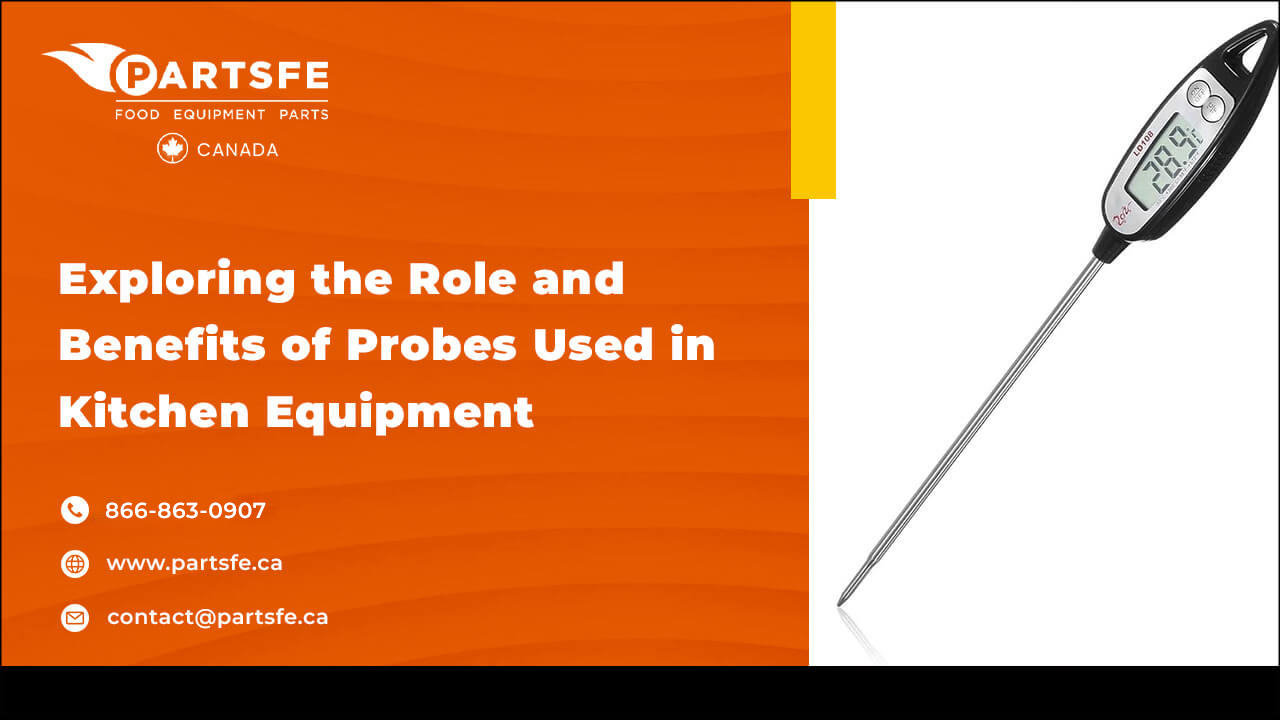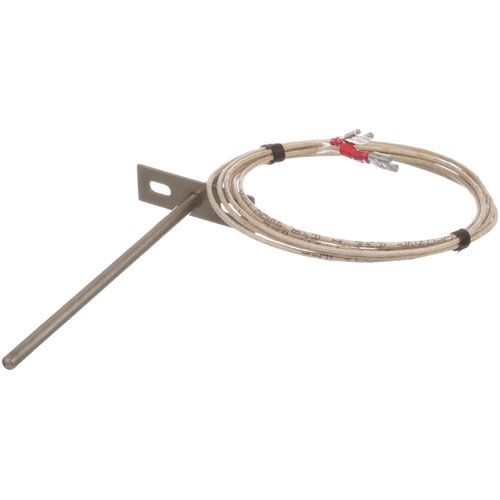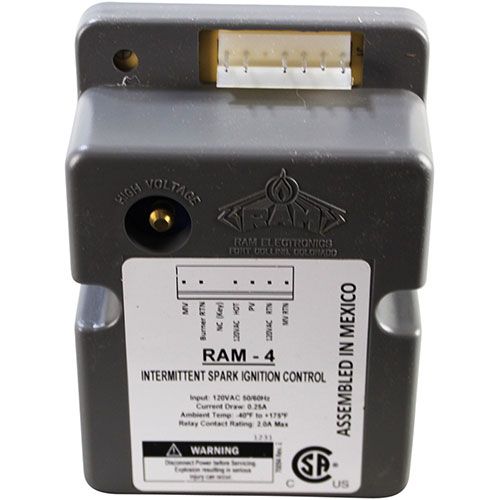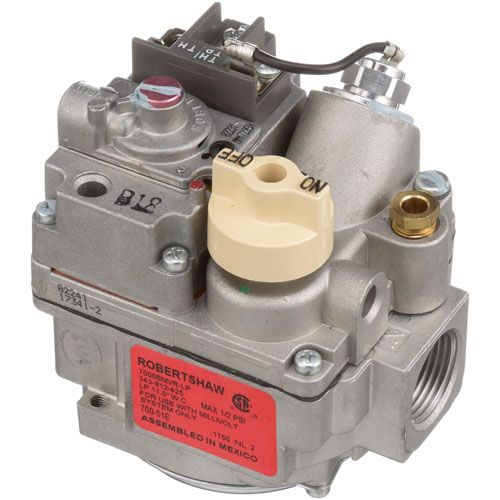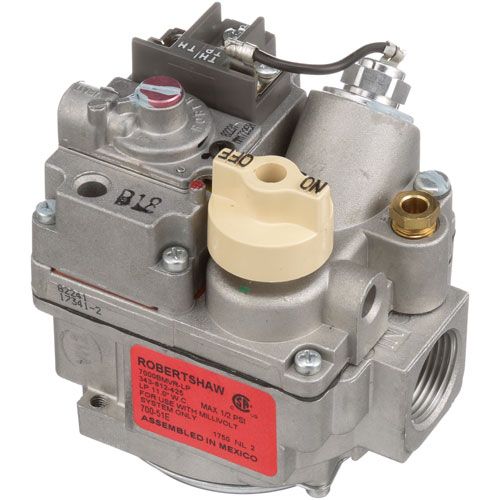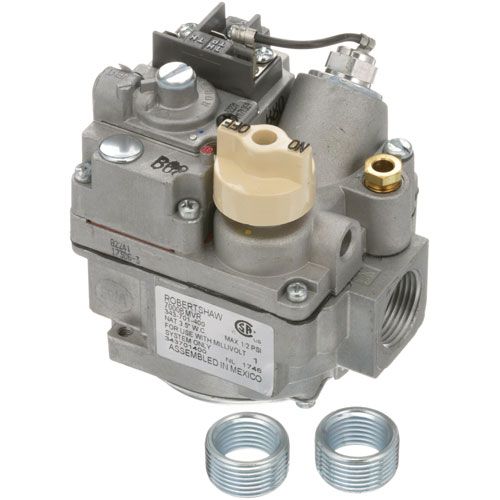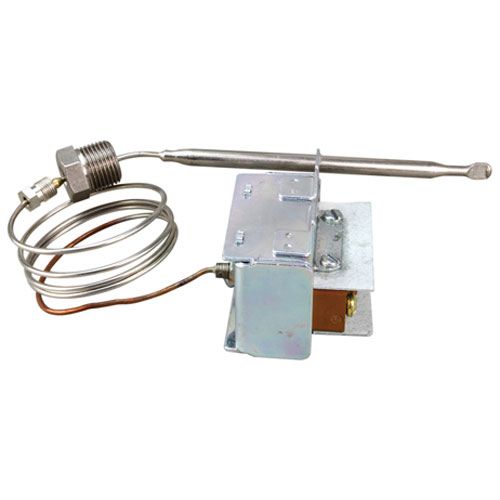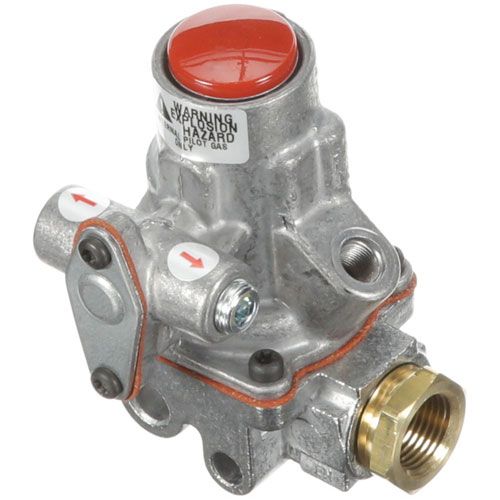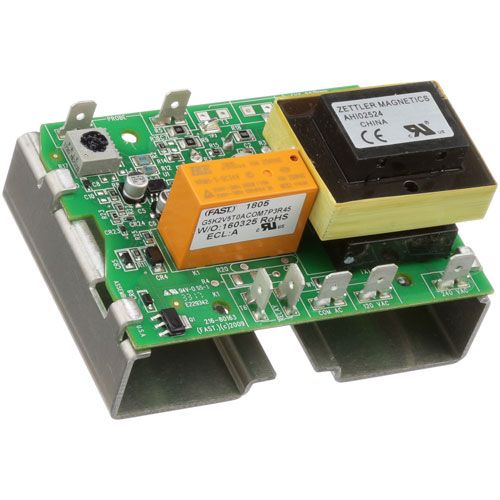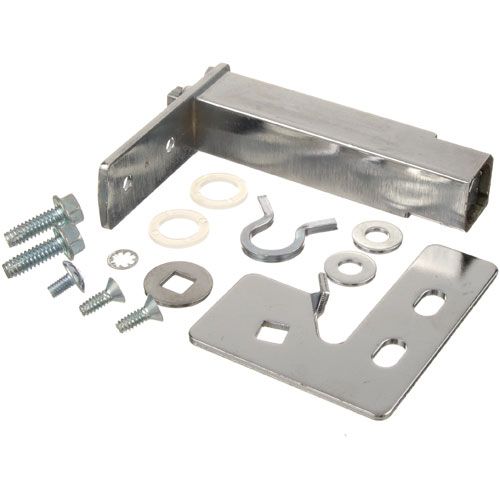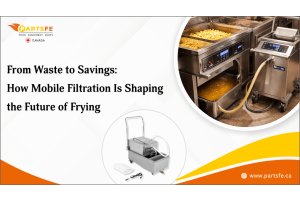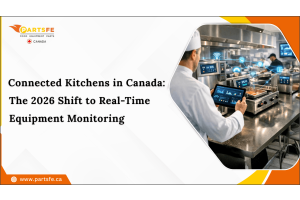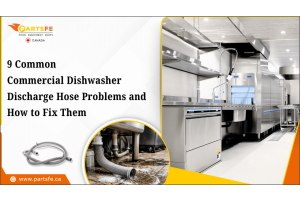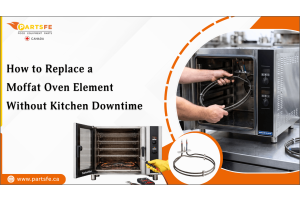Role & Benefits of Probes Used in Kitchen Equipment: Everything You Need to Know
In the fast-paced world of professional kitchens, precision is essential. Whether it’s ensuring food safety, perfecting a dish’s flavor profile, or maintaining consistency in preparation, kitchen equipment plays a pivotal role. One of the most valuable tools in modern kitchen equipment is the probe, specifically temperature probes, which allow chefs and foodservice professionals to measure internal temperatures of food accurately.
But restaurant equipment probes are not just limited to temperature measurement. They are integral to a wide range of tasks, ensuring consistency, food safety, and improved cooking techniques. This article will dive into the role of probes in kitchen equipment, their benefits, and how they contribute to the overall success of cooking operations.
What are Probes in Kitchen Equipment?
A probe is a specialized sensor or tool that is typically used in kitchens to monitor, control, and record different variables, such as temperature, humidity, or even pH levels. The most commonly used probe in the kitchen is the temperature probe. These probes are inserted into food or cooking equipment to provide real-time readings on various cooking parameters, ensuring the right conditions for food preparation.
Probes can either be standalone devices or integrated into kitchen equipment such as ovens, grills, fryers, or thermometers. The probe's data is typically displayed digitally or through a mechanical dial, providing immediate feedback to chefs. This data is crucial for preventing overcooking, undercooking, or unsafe food conditions.
Types of probes used in commercial kitchen equipment
In commercial kitchen equipment, various types of probes are used for monitoring and ensuring food safety, quality, and proper cooking temperatures. Here are several common types of probes used in commercial kitchens:
Temperature probes: The most popular type of probe, temperature probes are essential for ensuring that food is cooked at the optimal temperature. Temperature probes can be used in both hot and cold settings and measure internal temperatures, offering accurate readings.
-
Penetration Probes: Used to check the internal temperature of foods, especially meats, to ensure they are cooked thoroughly.
-
Surface Probes: Surface Probes Monitor the temperature of flat surfaces like grills, griddles, or stovetops to maintain heat consistency.
-
Air Probes: Measure the air temperature inside ovens or refrigeration units to ensure proper food storage and cooking conditions.
Digital Thermometers: These are handheld devices that use a probe to measure the internal temperature of food. Digital thermometers are ideal for instant-read measurements and can be used for meats, poultry, fish, and baked goods.
Meat Thermometers: Specially designed probes that are used specifically for monitoring the internal temperature of meats. These thermometers come in both analog and digital formats and offer precise readings that help prevent the risk of undercooking or overcooking meat.
Wireless Probes: These high-tech probes send temperature data wirelessly to a monitoring system or app. They can be used in ovens, grills, or smokers, allowing chefs to monitor food temperatures from a distance.
Humidity and pH Probes: While temperature probes are the most common, other probes are also used in specific cooking situations. Humidity probes are used in baking to ensure that dough or pastries are kept at the proper moisture levels. pH probes are essential for measuring the acidity of food or liquids, which is important in recipes like sauces or jams.
How are probes used to monitor temperatures in commercial kitchens?
Probes are integral to maintaining food safety, quality, and proper cooking temperatures. Penetration probes are inserted into food items, such as meats, to ensure they are cooked thoroughly. They provide accurate internal temperature readings, ensuring food safety and quality. Surface probes are employed to monitor the temperature of flat cooking surfaces like grills and griddles. They help maintain consistent heat distribution for effective cooking.
Air probes are utilized to measure the air temperature inside ovens, refrigeration units, or storage areas. Ensuring the correct air temperature is vital for proper food storage and cooking conditions. These probes monitor the quality and temperature of cooking oils to ensure they are within safe levels for frying food, preventing the degradation of oils and maintaining food quality. Refrigeration probes, such as evaporator probes, are critical for monitoring the temperature inside refrigerators and freezers. They are essential for maintaining food preservation and preventing spoilage. These probes measure the temperature of grills or griddles, ensuring proper heat distribution and cooking consistency to achieve the desired results. Digital timers with probes are used for timing processes and alerting when food reaches the desired temperature, enhancing efficiency in food preparation.
What are the main benefits of employing probes in commercial kitchens?
Employing probes in commercial kitchens offers several benefits:
|
Advantages |
Description |
|
Food Safety |
Monitoring temperatures using probes helps ensure that food items are cooked to safe internal temperatures, reducing the risk of foodborne illnesses and ensuring compliance with food safety regulations. |
|
Food Quality Assurance |
Probes enable the precise monitoring of cooking temperatures, ensuring that food is cooked to the right level of doneness, and maintaining its quality, taste, and texture. |
|
Compliance with Regulations |
By using probes to monitor food temperatures, commercial kitchens can comply with health and safety regulations, maintaining high standards of food hygiene and safety. |
|
Operational Efficiency |
Probes aid in ensuring consistent and efficient cooking processes, reducing the likelihood of food being overcooked or undercooked, and minimizing waste. |
|
Prevent Equipment Failures |
Monitoring temperatures with probes helps to guarantee that food items are cooked to safe interior temperatures, lowering the risk of foodborne illness and assuring compliance with food safety laws. |
|
Customer Satisfaction |
Consistently cooked and safe-to-eat food, ensured with probes, contributes to customer satisfaction, helping build a positive reputation for the establishment. |
|
Cost Savings |
By minimizing food waste through precise temperature monitoring, establishments can lower costs and improve overall operational efficiency. |
|
Liability Protection |
Employing probes to monitor food temperatures can help protect commercial kitchens from liability in the event of food-related incidents, as they demonstrate due diligence in food safety practices. |
|
Quality Consistency |
Probes play a crucial role in maintaining the consistent quality of food products across different batches, leading to greater customer satisfaction and loyalty. |
How do you choose the best probe for your kitchen's requirements?
Based on your needs, identify the most suitable type of probe, such as penetration, surface, air, or oil quality probes. Look for probes that offer high accuracy and precision in temperature measurements, which are crucial for ensuring food safety and quality. Ensure the probe's temperature range aligns with the types of food, cooking methods, and equipment in your kitchen. Choose probes that are durable and able to withstand the rigors of a commercial kitchen environment, including high temperatures, moisture, and frequent use. Select probes that are user-friendly and easy to operate, calibrate, and clean, minimizing downtime and streamlining operational efficiency. The selected probes comply with relevant food safety and hygiene standards to maintain regulatory compliance. Consider the ease of calibration and maintenance for the probes, as regular upkeep is required for precise temperature monitoring. Decide whether wireless or wired probes are more suitable for your kitchen setup, considering factors such as convenience, mobility, and connectivity. The selected probes are compatible with the equipment and appliances in your kitchen, such as grills, ovens, refrigerators, and deep fryers. Consider the budget allocated for probes and balance it with the desired features and quality to ensure cost-effectiveness. Research the reputation of probe vendors, including after-sales support, warranty, and responsiveness to queries or issues.
What are the leading probe manufacturers?
In the realm of commercial kitchen equipment, various top manufacturers produce high-quality probes essential for temperature monitoring and food safety. Some of the top manufacturers known for their excellent probes include:
-
Manitowoc: is a reputable manufacturer of commercial kitchen equipment, including probes, known for their durability and reliability in temperature monitoring.
-
Vulcan: is a leading brand in the food service industry, offering top-quality probes and kitchen equipment known for their precision and efficiency.
-
Southbend: is a trusted manufacturer specializing in commercial kitchen equipment, including probes, valued for their accuracy and performance.
-
Hobart: is a well-established brand renowned for its kitchen equipment, including probes, known for their durability, accuracy, and innovation.
-
APW: is a manufacturer providing reliable probes and kitchen equipment, favored for their quality and functionality in commercial kitchens.
-
Hoshizaki: is a prominent brand offering a range of probes and commercial kitchen solutions, recognized for its precision and technological advancements.
PartsFe.Ca is a comprehensive resource for all your commercial kitchen needs, offering a diverse selection of probes, appliance parts, and products from top brands like Manitowoc, Vulcan, Southbend, Hobart, APW, and Hoshizaki. With a commitment to providing high-quality products and excellent customer service, Probes contributes to compliance with food safety regulations, minimizes the risk of foodborne illnesses, and helps maintain high standards of food quality. Furthermore, using probes enhances operational efficiency, reduces food waste, and contributes to cost savings. By providing precise temperature monitoring and control, probes enable commercial kitchens to produce consistently high-quality dishes while adhering to health and safety standards Selecting the appropriate probe for specific kitchen requirements involves careful consideration of factors such as food safety, maintaining quality, preventing overcooking or undercooking, complying with regulations, reducing food waste, and increasing efficiency.
FAQs
What exactly is the purpose of employing probes in kitchen equipment?
Probes are used in kitchen equipment to monitor and control temperatures while cooking and preparing meals. They help to ensure food safety, quality, and uniformity.
How do probes help ensure food safety in industrial kitchens?
Probes enable kitchen staff to reliably monitor the internal temperature of food items, ensuring that they reach appropriate temperatures to destroy harmful germs and pathogens, lowering the risk of foodborne illness.
Which sorts of kitchen equipment use probes?
Probes can be used to monitor and control temperature in a variety of culinary equipment, including ovens, grills, fryers, sous vide machines, and refrigeration units.
Can probes help prevent food from being overcooked or undercooked?
Yes, probes give chefs real-time temperature data, allowing them to precisely adjust cooking times and temperatures to avoid overcooking or undercooking, resulting in flawlessly cooked food.
How do probes help to ensure regulatory compliance in commercial kitchens?
Many health and safety standards require commercial kitchens to routinely monitor and verify food temperatures. Probes help kitchens comply with these rules by providing precise temperature readings and documentation.

